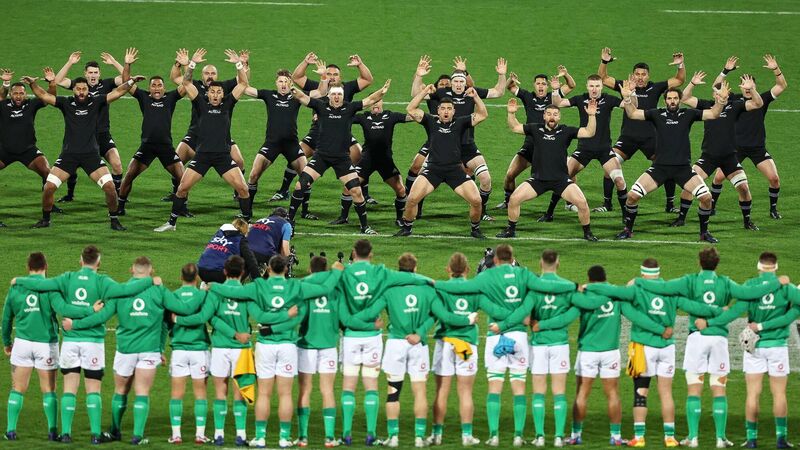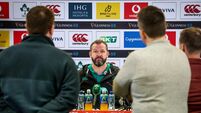Donal Lenihan: Now we are seeing the true benefits of Ireland's NZ tour

PERFECT PREP: New Zealand perform the haka against Ireland last summer. Pic: ©INPHO/Photosport/Grant Down
News that Ireland will open their 2024 Six Nations campaign against France on a Friday night, not in the familiar surrounds of the Stade de France, undergoing a revamp for the Olympics - but, in new territory for this tournament, most likely at the Stade Velodrome in Marseille - set my mind wondering.
SIX NATIONS CHAMPIONSHIP
Your home for the latest news, views and analysis of this year's Six Nations Championship from our award winning sports team.
SIX NATIONS CHAMPIONSHIP
Your home for the latest news, views and analysis of this year's Six Nations Championship from our award winning sports team.















